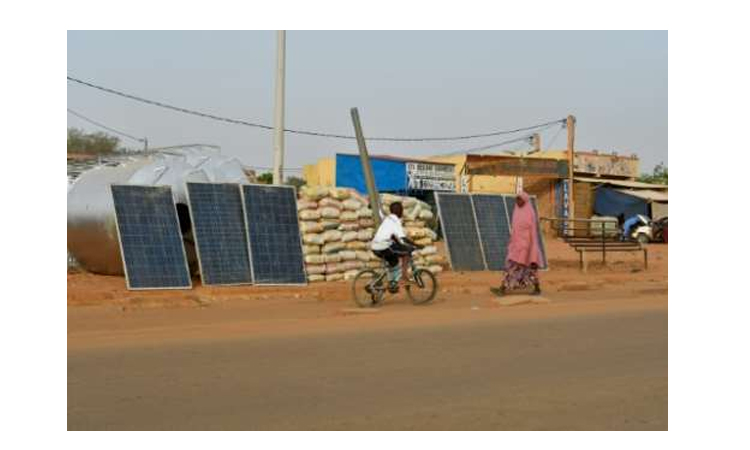News Flash
News Flash

NIAMEY, Niger, April 16, 2025 (BSS/AFP) - Solar panels like the ones on the roof of Elhadj Abdou's house are an increasingly common sight in Niger's capital, which is often hit by power cuts.
"There are no more power cuts here and there are no bills to pay, everything works on solar energy," said Abdou, who lives in Niamey's Lazaret neighbourhood.
Solar energy is booming in Niger, one of the world's sunniest countries, with sales of increasingly cheap solar panels going up and new projects coming online.
An unprecedented energy shortage in 2023 proved a turning point.
Neighbouring Nigeria suspended much of its electricity exports to the west African nation as part of regional sanctions against the ruling junta that toppled civilian president Mohamed Bazoum in July 2023.
Haoua Amadou, Niger's energy minister, said the measure led the country's electricity production to fall by 30 to 50 percent and forced state-owned power company Nigelec to impose planned power cuts that can last several days, especially in Niamey.
Nigeria has since resumed delivering electricity "but only providing 46 megawatts instead of the usual 80 megawatts", Amadou said.
Despite efforts to strengthen local production capacity, Niamey is still subject to controlled power shutdowns.
As a result, people and companies are increasingly turning to solar energy to fill the gaps.
- New lithium batteries -
"For the past two years, the solar market has been booming... demand remains high", said Djibril Tata, a solar equipment supplier whose sales are growing.
Another supplier, Hilaire Houndegnon, said he too had been benefiting from the bonanza.
"Business is good," said Houndegnon, reporting that sales had "more than doubled", with some 450 panels sold last year.
Experts say that recent lithium batteries, which last longer than previous models, along with Niger's increasingly qualified workers have contributed to the solar boom.
Panels, mostly imported from China, are regularly sold directly on the street.
The abundant supply has made solar equipment more accessible.
Prices for top-quality solar panels have been halved to under 50,000 CFA francs (about 75 euros).
"Even on a small budget, you can power a few light bulbs, a television and a fan," said technician Mahamadou Issa.
- Phone-charging for a fee -
Ali Amadou, a fruit street vendor in Niamey, has acquired a tiny solar panel, turning it into a side business.
"At night, I can turn the light on, during the day I charge cell phones," said Amadou, who charges about 100 CFA francs (0.15 euros) for the service.
Solar power is also popular in remote rural areas for powering drinking-water pumps.
International projects, funded by the World Bank or Arab humanitarian organisations, equip schools and hospitals to refrigerate vaccines and medicines.
Access to electricity in the vast desert country remains below 20 percent but new projects are under way and the junta, whose goal is to reduce its foreign dependency, is expected to keep up the pace.
Amadou, the energy minister, said a 19-megawatt project was under way near the central city of Agadez, while another more ambitious 200-megawatt project was among others being studied.
The country has been plagued by violence from groups linked to Al-Qaeda and the Islamic State.
Since coming to power in 2023, the military rulers have severed relations with France, Niger's former colonial master.
They have quit several international and regional organisations that they see as too subservient to France or failing in the fight against jihadism.